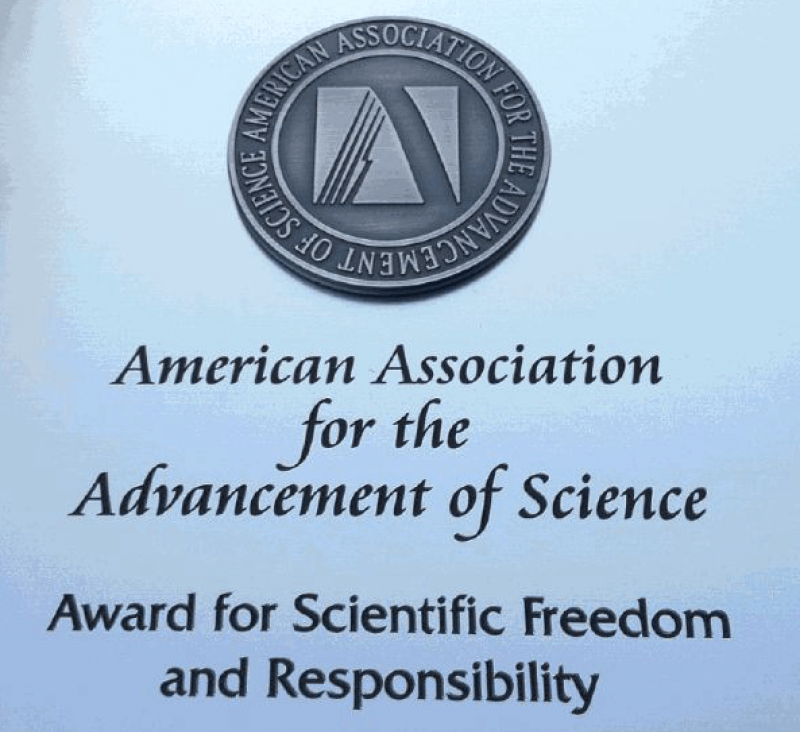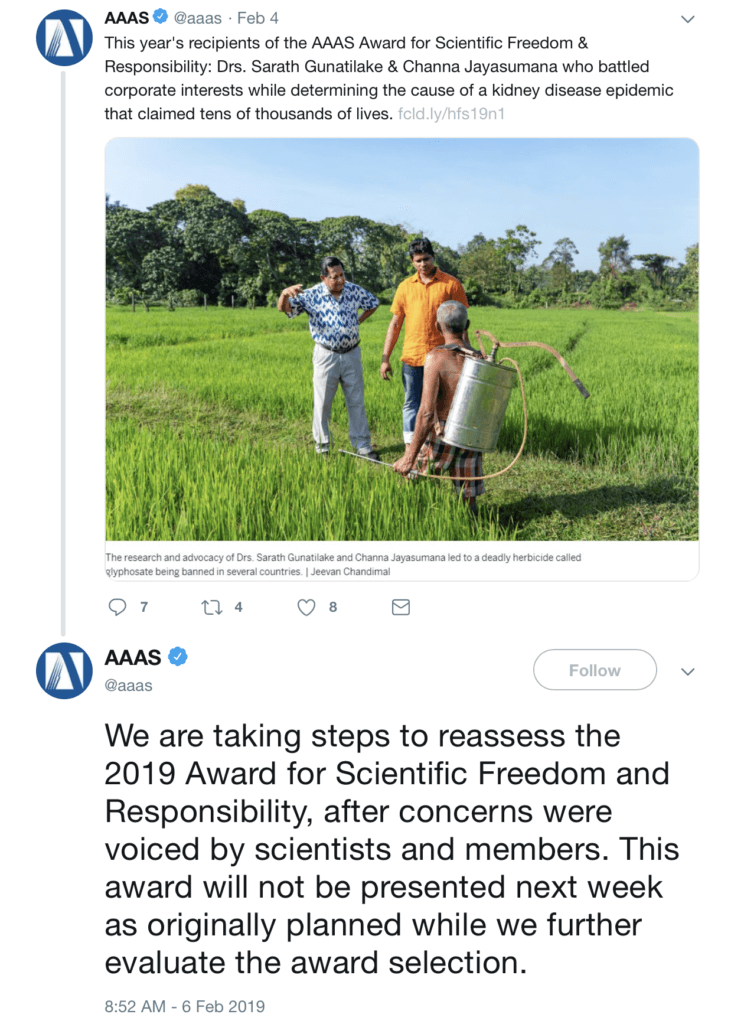Editor’s note: After this blog was posted, on February 6, the American Association for the Advancement of Science tweeted that it is “reassess[ing] the 2019 Award for Scientific Freedom and Responsibility after concerns were voiced by scientists and members.” The AAAS also announced that it would not present the award at its annual meeting next week while it evaluates the situation.
…
The AAAS, which stands for the American Association for the Advancement of Science, is one of the foremost pro-science organizations in the world….[I]t publishes the prestigious journal Science, read by millions of scientists around the world.
…
[January 4], AAAS issued a press release (since deleted, but forever available) about how the organization gave the 2019 “AAAS Scientific Freedom & Responsibility Award” to two researchers “who battled powerful corporate interests to uncover….a kidney disease epidemic that has claimed tens of thousands of lives in their home country of Sri Lanka and around the world.”Wow. That’s quite the conspiracy they uncovered. Powerful corporate interests and tens of thousands of dead bodies. What was the cause of all that?
… What’s the evidence for that extraordinary claim? Well, there isn’t any. As Dr. Kevin Folta explains for the Genetic Literacy Project, it’s a testable yet unproven hypothesis based on the work of the two researchers whom the AAAS is honoring. But here’s the rub: Their research, which is based in Sri Lanka, is confounded by the fact that heavy metal contamination is rampant throughout the country. And there is evidence linking cadmium exposure to chronic kidney disease.
…
There’s really no nice way to put this. The AAAS has severely damaged its own reputation. This was a self-inflicted gunshot wound. What on Earth were they thinking?
Read full, original article: AAAS Runs Dishonest Glyphosate Story, Then Deletes It. Is Politics To Blame?
































